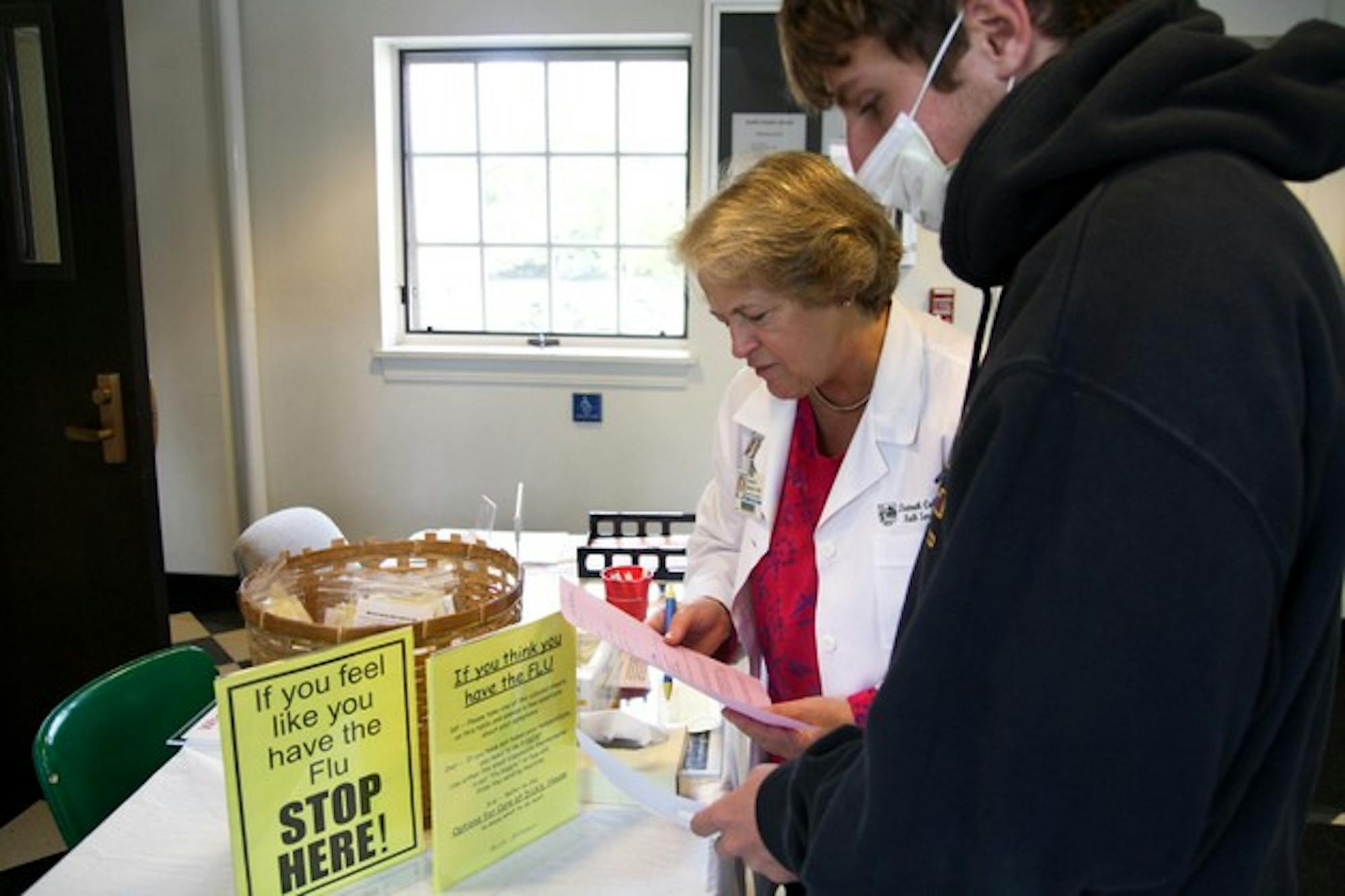Over the past three weeks, there have been 104 cases of influenza-like illnesses. There were 226 cases in the preceding three weeks.
Turco warned in a weekly online update on Friday that it is still too soon to say that "influenza-like illness has run its course at Dartmouth."
Turco estimated that approximately 50 percent of the reported illnesses involved the H1N1 virus. The College has been randomly testing students with relevant symptoms for the H1N1 virus, and in a recent sample, two-thirds tested positive, Turco said.
There have been few inpatient cases of influenza-like illness at Dartmouth-Hitchcock Medical Center, according to DHMC media coordinator Jason Aldous, who he said did not know the exact number.
The nasal spray form of the H1N1 vaccine, which contains the live, attenuated form of the virus, was distributed to Dartmouth health care providers, first responders and day care center employees, Turco said.
"We did have a clinic last week with the remaining live vaccines for any students," Turco said.
Dick's House received a limited number of doses of the killed H1N1 vaccine the week of Oct. 15. This form of the vaccine was made available to students at high risk of developing complications as a result of an H1N1 infection, including students on immunosuppressive medications or with chronic medical conditions like diabetes or asthma.
College Health Services anticipates it will receive additional doses of the vaccine, but unpredictable delays in the vaccine's production schedule and the federal government's distribution make the exact date uncertain, Turco said.
Turco said students will be able to sign up for appointments online when the vaccine is available. Appointments are limited, however, and will be offered on a first-come, first-serve basis.
Because the initial shipments of the vaccine were limited to high-risk groups, there were reports of individuals elsewhere in the United States faking high-risk illnesses to become eligible to receive the inoculation. No such incidents occurred at Dartmouth, Turco said.
Students not at risk for complications who came to the clinic generally had misunderstood the guidelines and left after realizing their mistake, Turco said.
It was impossible for DHMC patients to falsify their need for the vaccine, Aldous said, because DHMC only gave vaccines to health care workers and people on a hospital-generated list of high-risk patients.
"We have been proactive and have been contacting people that we know have a condition that warrants them getting the vaccine," Aldous said.
Even though individuals who contract the H1N1 virus generally have mild symptoms, Turco recommended that all students get the vaccine to protect themselves and help prevent the virus from spreading.




